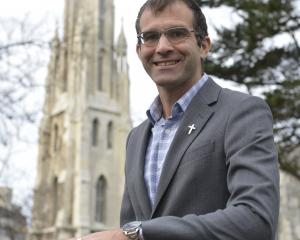If only . . . ! If only church folk in Victorian England had responded to Charles Darwin's Origin of Species by heeding the advice of a Geological Society president to "avoid that fatal error of connecting the results of scientific inquiry with the articles of religious belief"!
If only leading churchmen had not treated Darwin's sober scientific inquiry as an attack on their faith!
If only Thomas Huxley and other shock-troops of Darwinism had been content to breathe through their noses, like Darwin himself, until people had time to absorb his conclusions, rather than savage anyone who was disturbed by them!
Then the West might have been spared the second great stoush between science and Christianity, following the misguided conflict 240 years earlier between Galileo Galilei and the Catholic Church.
It was not to be.
In the mid-19th century, that would have been too much to hope, for more than mere science was at stake.
To some people, the publication of On the Origin of Species in 1859 was just another salvo in a struggle to change the settled order of English society.
The notion of evolution by means of natural selection carried an implicit challenge to the social and religious hierarchies, and in particular the Anglican Tory establishment.
Only a few years earlier, a rash of revolutionary uprisings had rocked European monarchies, and England was not necessarily immune.
The Church and its privileges identified with the old order, and ideas that undermined time-hallowed biblical "truths" about the world and humankind's place within it were dangerous.
Take a creator God out of the equation of life, and the whole edifice was threatened.
Besides, as Adrian Desmond and James Moore make clear in their fine biography Darwin, not all scientists were persuaded to Darwin's view.
Instead of natural selection, one influential naturalist argued for "ordained continuous becoming" - evolution, yes, but under God's guiding hand.
The notion persists today as intelligent design.
Physicists recalculating the age of the Earth questioned whether there had been enough time for natural selection to do its transforming work.
Evangelical Anglican scientists affirmed a harmony between God's Word and his works.
For others, evolution was not a problem, but they rejected natural selection as the mechanism - "the law of higgledy-piggledy", said one.
Some held that humans occupy a special place in the universe, and linking their origins to monkeys was a step too far.
Even some of Darwin's followers were troubled by his terms "natural selection" and "preference", for might that not imply that there was a divine agency doing the selecting or preferring? Another evolutionist, Herbert Spencer, met the objection by proposing instead "survival of the fittest", and it stuck.
On the other hand, churchmen were not universally hostile to Darwin's proposition.
Only three months after Origin, seven Anglican theologians published a series of Essays and Reviews questioning biblical infallibility and eternal damnation for unbelievers, and favouring evolution over miracles.
They were promptly denounced by 26 Anglican bishops, and 11,000 clergy signed a declaration condemning the volume - but another 13,800 did not sign.
In time, as scholars probed more deeply into the nature, origins and intent of the Bible, old certainties about its infallible content eroded, so allowing liberal Christians to consider Darwin's conclusions more objectively.
If some of the churchmen were over the top in their denunciations of Darwinism, so was Huxley, "Darwin's bulldog", in its defence.
He was determined to split science from theology once and for all, vowing to "see the foot of science on the neck of her enemies".
When Pope Pius IX issued an encyclical in 1864 condemning naturalism and human reason untutored by the church, Huxley shot back with one of his own.
To Huxley we owe the word agnostic ("not knowing"), describing those who have not made up their minds finally about God.
It described many of his contemporaries, not convinced by the claims of the Church but short of outright rejection.
The word fitted Darwin himself.
Late in life he wrote that he had "never been an atheist in the sense of denying the existence of God", but felt profoundly uncertain: "an agnostic would be the most correct description of my state of mind".
When Darwin died in 1882, a reconciliation of sorts took place as the high priests of science prevailed on the Anglican authorities to allow his burial in Britain's most hallowed national shrine, Westminster Abbey.
Two tumultuous decades on from Origin, the penny was at last dropping: scientific inquiry and religious belief need not be at daggers drawn.
• Ian Harris is a journalist and commentator












